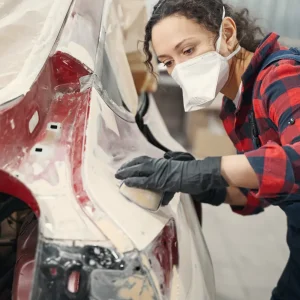The OBR forecast is rather grey following 2016’s Budget announcement, claiming that the chancellor is taking £4.2 billion more than he is giving.
There are areas of uncertainty in any Budget and this year is no different. But there was some positive news for the motoring industry across fuel tax, infrastructure and the future of technology. So what should those from the world of vehicle management be looking out for?
Well, let’s start with arguably one of the biggest rabbits Mr Osborne pulled out of his hat – his decision to freeze fuel duty at 57.9p for the sixth consecutive year. With the declining cost of oil, which has reduced unleaded prices by 21% over the past two years and diesel prices by 25%, many thought the chancellor would pounce on the opportunity to increase fuel tax.
The Institute of Fiscal Studies estimated that he would be foregoing £6billion in revenue every year by freezing fuel duty. So why has Mr Osborne taken such an unlikely decision?
The answer is, most likely, politics. With the European Referendum approaching, and a Conservative leadership election beyond that, suddenly it all seems to make sense.
The chancellor didn’t reveal any company car tax bands beyond those from last year’s Budget, which run up to the year 2019-20. This means that, as of April 2016, anyone agreeing a four-year lease minimum cannot be sure about their car’s tax status will be at the end of the period.
What is clear is that the Government wants drivers to go green. The chancellor announced that the 100 per cent First Year Allowance would be extended for businesses purchasing low emission vehicles and from 2018, the CO2 thresholds for FYA and capital allowances for business cars will be reduced to reflect falling vehicle emissions.
And as for Mr Osborne’s intentions, we know that he’s going to stick with CO2 until 2019-20. The wording of the Budget suggests that he’ll stick with it beyond that too – although we cannot be certain yet.
Plans for improvement to infrastructure seem generally positive although funding, with just £80 million being put towards the Crossrail 2 scheme, is limited.
It’s encouraging to learn that the Budget allocated another £50million to the Pothole Action Fund and around £130 million for the repair of roads and bridges damaged by recent storms. But billions more will be required if our country’s roads are to be bought up to scratch.
As the chancellor mentioned many times within the announcement, the aim of this year’s Budget was to meet requirements of the next generation. With this in mind, trials of autonomous cars are set to take place on British motorways by 2017. Mr Osborne forecasts similar trials for convoys of driverless lorries and the build of a ‘connected corridor’ between London and Dover. What else is there to say except, ‘could the future almost be here?’
Although there was plenty to be positive about within this year’s Budget there was uncertainty, and those in the motoring world may well have to keep searching for answers that have been left in the dark.





